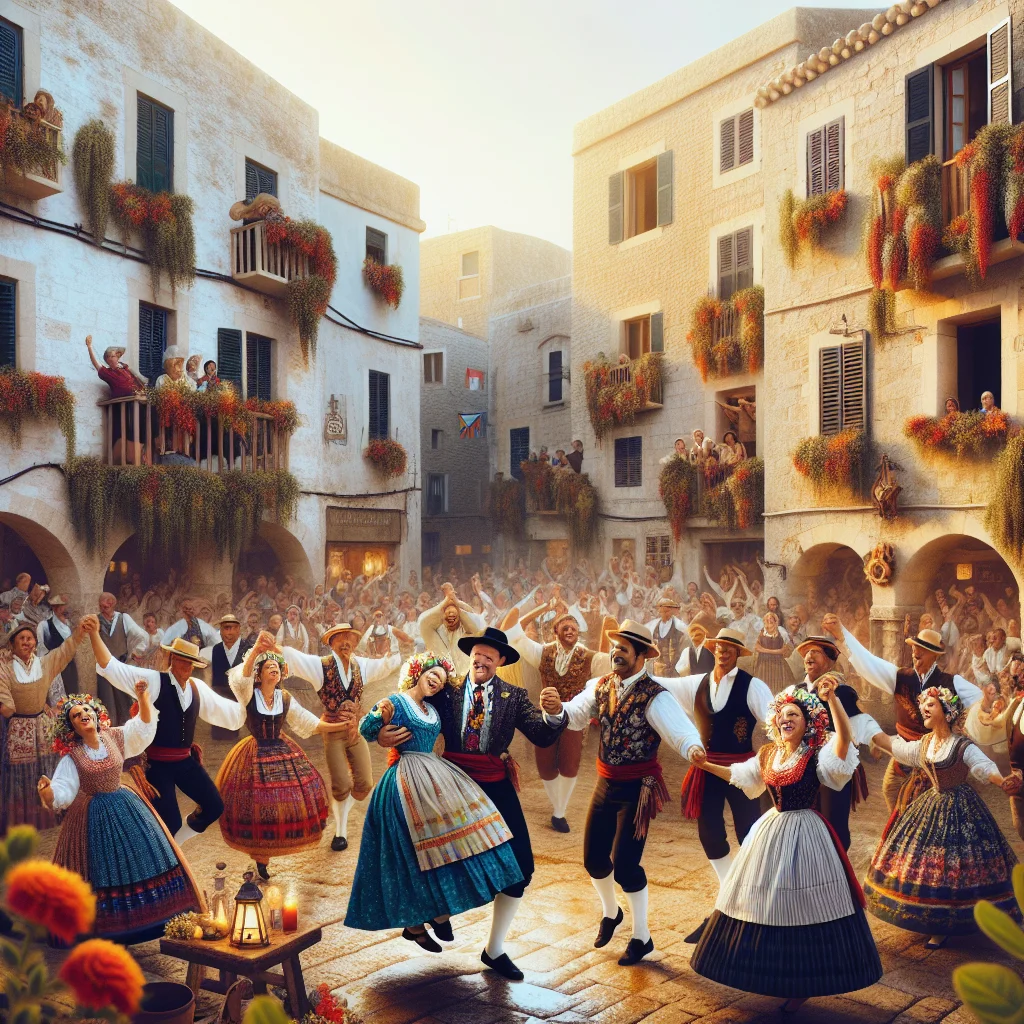Immerse Yourself in Formentera's Vibrant Cultural Traditions
April 22, 2025

Formentera, a hidden gem in the Mediterranean, offers visitors an enchanting blend of stunning landscapes and rich cultural experiences. Known for its crystal-clear waters and pristine beaches, this island also boasts a vibrant cultural scene that celebrates the traditions and lifestyles of its locals. In this article, we will explore various cultural experiences that allow eco-conscious travelers to connect with the island's heritage sustainably while minimizing their ecological footprint.
Festivals that Celebrate Tradition and Community
Formentera hosts several annual festivals that reflect its local culture and community spirit. One notable event is the Fiesta de Sant Jaume, held every July. This celebration honors the island's patron saint with colorful parades, traditional music, and local culinary delights. Attending this festival offers a chance to engage with residents and participate in age-old customs.
To ensure a sustainable experience, travelers can use public transportation or rent a bicycle to reach the festivities, reducing carbon emissions while exploring the island's beautiful landscapes. Visitors are also encouraged to purchase locally crafted goods from artisans, as this supports the local economy and preserves traditional crafts.
Culinary Experiences Rooted in Tradition
The culinary landscape of Formentera is as rich as its culture. The island's cuisine is characterized by fresh ingredients sourced from the surrounding waters and local farms. Traditional dishes such as pa amb oli (bread with oil and toppings) and frit de porc (a pork dish) reflect the island's agricultural and fishing heritage. By dining at family-run taverns or agrotourism restaurants, travelers support local producers and ensure a more sustainable dining experience.
Many of these establishments pride themselves on using organic and locally sourced ingredients, minimizing their ecological impact. To enhance your culinary journey, consider participating in cooking classes offered by local chefs. These classes often include visits to local markets, allowing visitors to learn about seasonal ingredients and traditional preparation methods while enjoying an interactive experience.
Engaging with Local Arts and Crafts
The tradition of craftsmanship is deeply embedded in Formentera’s culture. Local artisans create beautiful handmade goods, including textiles, pottery, and jewelry that reflect the island’s heritage. Engaging with these crafts not only enriches the travel experience but also fosters a connection with the local community.
When shopping for souvenirs, travelers can visit artisan markets and workshops. For example, the Mercat de Formentera offers a variety of handmade products from local artists, allowing visitors to take home a piece of the island's culture while supporting sustainable practices. Choosing handcrafted items over mass-produced souvenirs not only reduces waste but also helps preserve traditional skills.
Exploring Historical Sites Sustainably
Formentera is home to several historical sites that tell the story of its rich past. One such site is the Castell de la Mola, a 16th-century fortress that provides panoramic views of the island. Exploring this site allows visitors to appreciate the island's strategic history while enjoying the natural beauty surrounding it.
When planning visits to historical sites, consider the most eco-friendly modes of transportation, such as biking or walking. This not only reduces environmental impact but also enhances the appreciation of the island's landscapes and cultural heritage. Guided tours focusing on sustainability can also provide in-depth knowledge about the historical significance of these sites while ensuring that the impact on the environment is minimized.
Nature and Culture: A Harmonious Blend
The natural environment of Formentera is intrinsically linked to its cultural identity. Activities such as traditional fishing and farming practices have shaped the island's landscape and lifestyle. Eco-conscious travelers can participate in guided tours that educate them about the importance of sustainable practices in preserving both the environment and cultural traditions.
For instance, guided kayak tours can illuminate the traditional fishing methods used in local waters while allowing participants to experience the island's stunning coastline firsthand. These tours often emphasize ecological preservation and respect for marine life, enhancing the cultural understanding of the island's connection to the sea.
Conclusion
Formentera offers a wealth of cultural experiences that are not only enriching but also respect and preserve the island's natural beauty and community spirit. By participating in local festivals, exploring culinary traditions, engaging with artisans, and embracing eco-friendly travel practices, visitors can deeply connect with the cultural heritage of this Mediterranean paradise. Sustainable tourism allows travelers to enjoy the authentic essence of Formentera while contributing positively to its preservation and future.
Back